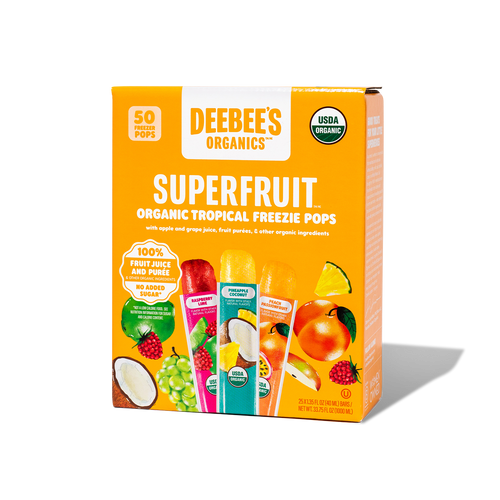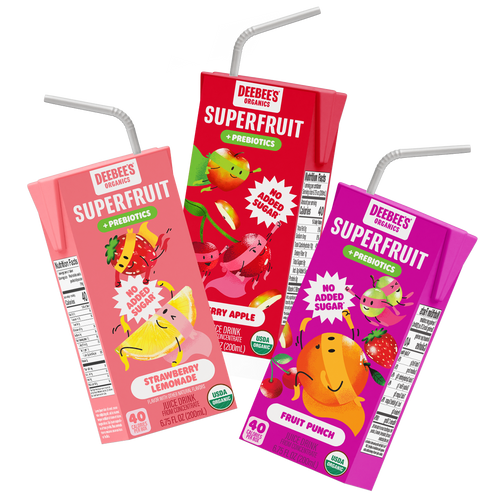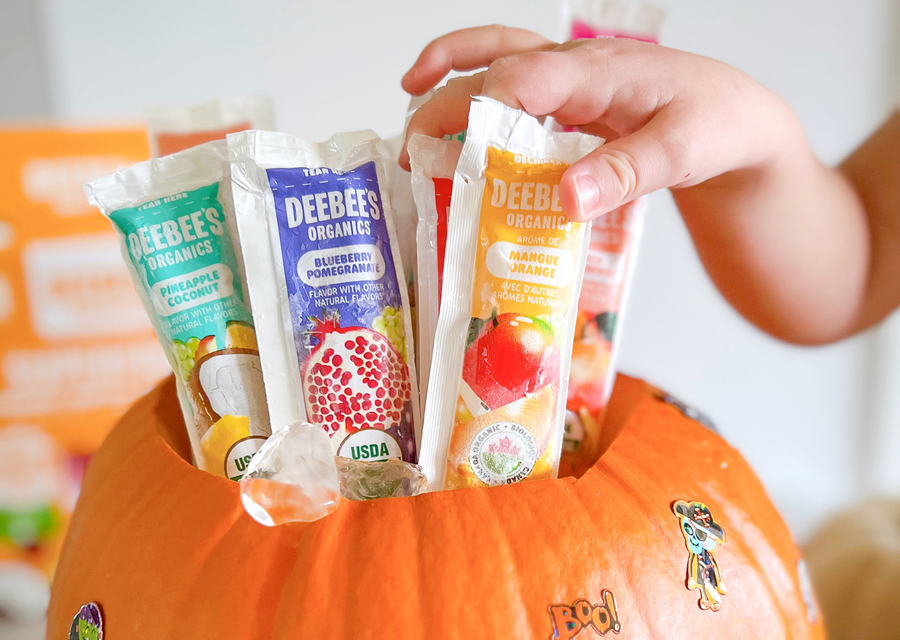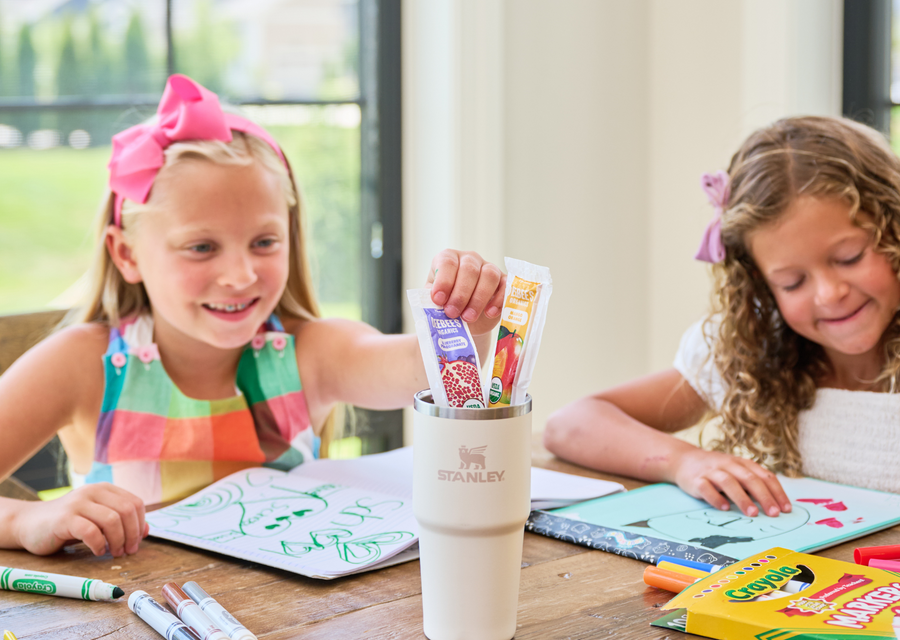There’s no doubt that raising happy, healthy children is both a blessing and a challenge. It can be especially challenging when we walk the grocery aisles, where there are so many products screaming many different self-described benefits at us. It’s difficult to know what to actually put in our carts!
Perhaps nowhere is this more true than when it comes to so-called ‘healthy’ food labelling. You’d be forgiven for thinking the labels ‘organic’ and ‘natural’ mean more-or-less the same thing. Unfortunately, the reality is that these labels are quite different, which can have big implications on their health benefits.
You can probably tell from our name (DeeBee’s Organics!) that we’re firmly committed to organic food and agriculture.
5 Reasons to Switch to Organic
- Organic food is truly chemical free, unlike food with a 'natural' label
- Organic food is GMO-free
- Organic food has regulation, oversight & guarantees that 'natural' foods aren't required to have
- Organic food is grown in a way that's safe for children consuming the food, and those near the food being grown!
- Organic food is better for the environment, as well as our individual health
1. Organic vs Natural: Truly Chemical Free
First things first. If you’re debating between ‘organic’ versus ‘natural,’ at the grocery store, then you’re trying to pick the healthiest food for your family. And the difference between organic and natural may be far greater than you realize.
Organic food is grown without toxic, persistent and/or petroleum-based fertilizers. In other words, it’s grown without all the ‘stuff’ that you don’t want to be ingesting. This is especially important for children, since pesticides can act as endocrine disruptors, neurodevelopmental toxicants, immunotoxicants and carcinogens. In fact, pre- and post-natal exposure can be linked to severe outcomes like childhood cancer, preterm birth and neurological deficits.
Natural food, on the other hand, is simply food without synthetic or artificial ingredients or additives. In theory, that’s great. But be careful - high fructose corn syrup can be ‘natural’ (no thank you), as can GMO food and foods grown with pesticides.
2. GMO-Free
Speaking of GMOS, choosing organic food is a great way to ensure you’re only giving your children non-GMO food. That’s because to be labelled as ‘organic,’ a product must also be non-GMO. No such regulations apply to ‘natural’ foods.
3. Guaranteed
And speaking of regulations, when it comes to foods with the ‘natural’ label, there basically are none. So, while ‘natural’ is supposed to mean free from artificial ingredients, the reality is that neither the FDA nor the USDA regulate who uses this term.
The result is that while some natural foods may be wonderful choices for your kiddos, many others can actually be highly processed, with an ‘all-natural’ label slapped on at the end.
Organic labelling, on the other hand, is strict and heavily regulated. So when something is labelled ‘organic,’ you can know for sure that it’s pesticide free and non-GMO, too.
4. Better For Children Everywhere
Organic food is great for your own health, but we also champion it because of its impacts on farmers and children everywhere. Think about how much you don’t want your children to eat the residue of chemical toxins and pesticides. Now imagine the children and farmers who live on and near these crops.
We know from many studies that inorganic, pesticide-heavy farming exposes underprivileged mothers, babies and children to a host of chemicals that can have a serious impact on their long-term health. Learn more here, so you can make a more informed decision about the wider impact of the foods you choose.
5. Better For The Environment
And of course, along with being better for farming communities, organic farming practices are better for the planet, period. A ‘natural’ label tells you nothing about how the product has been grown. An ‘organic’ label, on the other hand, ensures you are choosing food from sustainable, environmentally responsible and well-regulated farms.
Clearly, when comparing organic versus natural foods, organic is the healthier, more ethical choice for your family. Of course, we understand that for many families, the price of organic food can be prohibitive. If that’s the case for you, we strongly encourage you to consider focusing on the ‘dirty dozen’ of the fruits and vegetables with the most pesticides.
And remember that there are treats like our SuperFruit Freezies which are all made with 100% organic fruit. And as an added bonus, they’re also actually ‘natural,’ made without any sugars, artificial flavors, or preservatives (we’re pretty proud about that!).
We can’t raise our children in a bubble, as much as we might like to. There are going to be times where they eat things we’d rather they didn’t, and ‘natural’ is often a better choice than a highly processed free-for-all.
But when we do have the option, we always reach for organic, both for their sake, and for the future of their planet.





